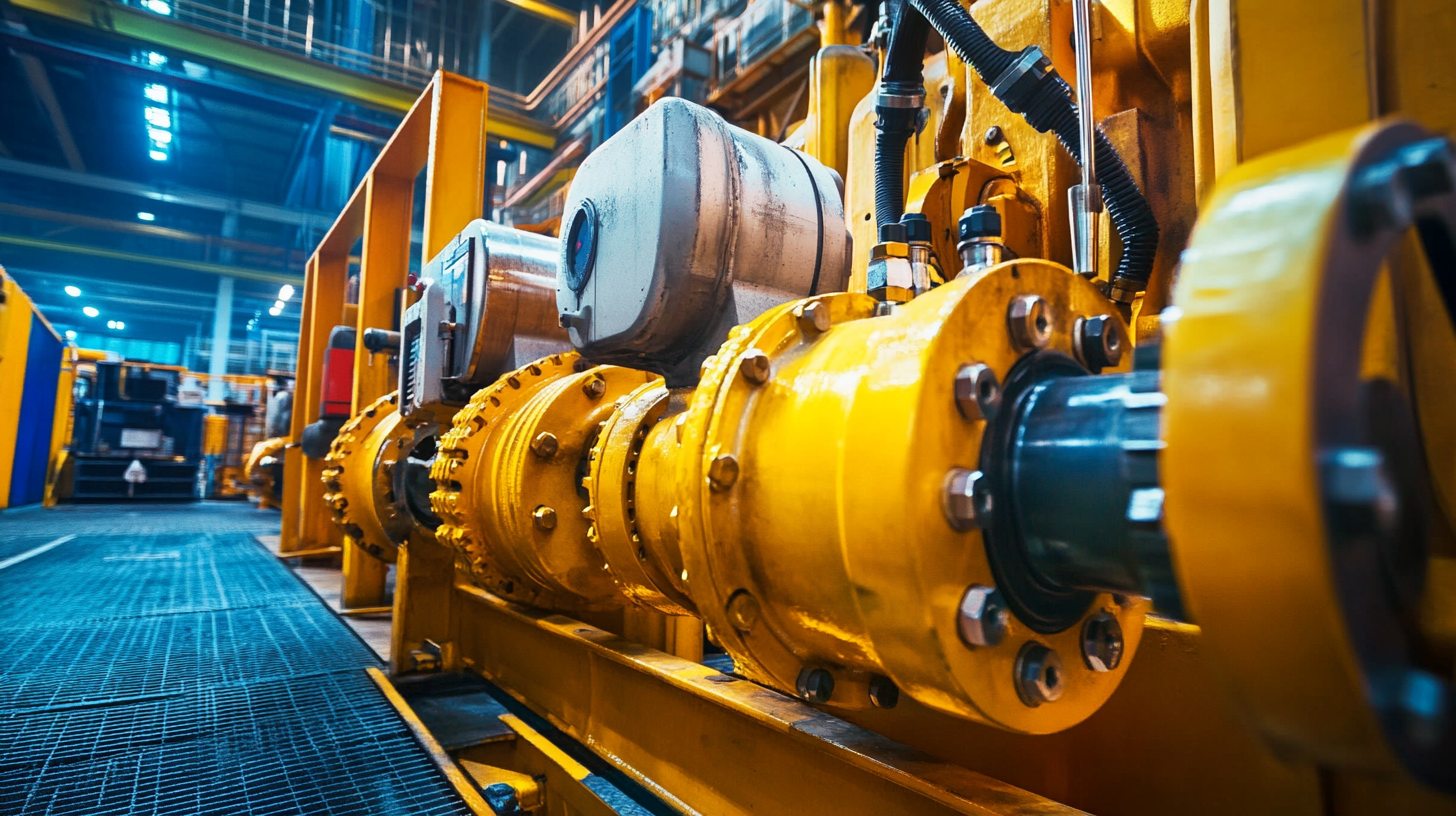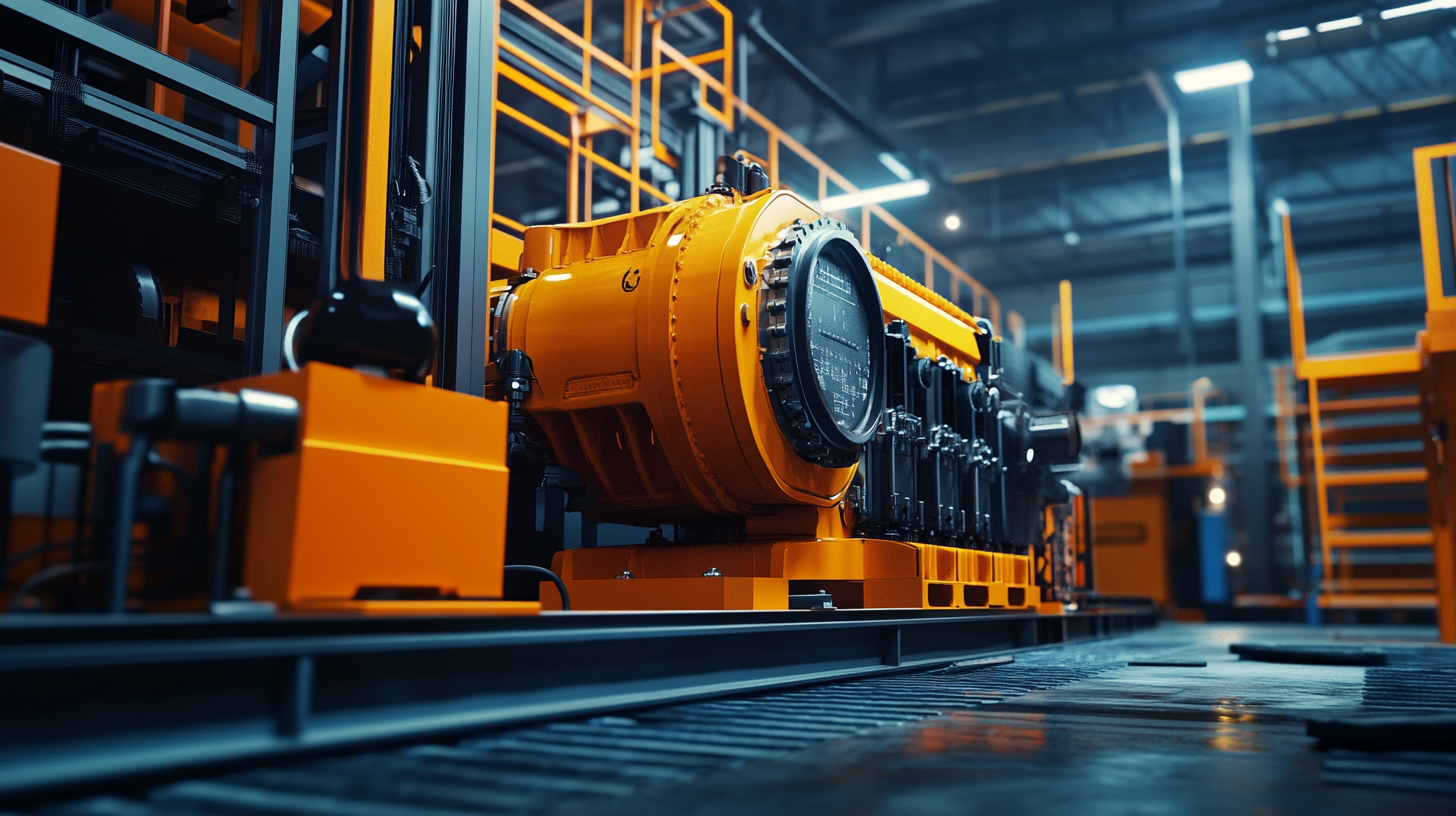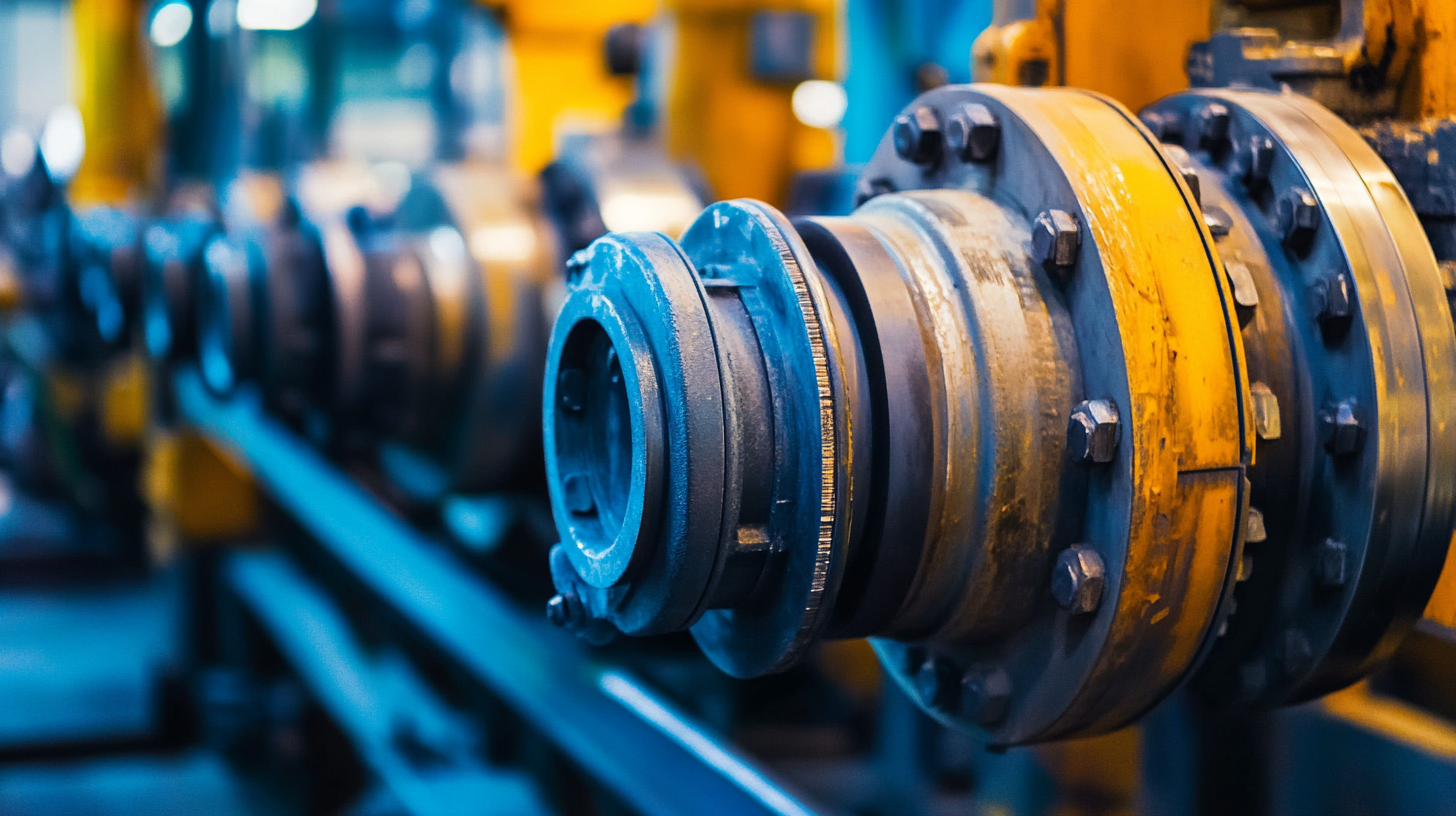International Fluid Power Inc.
International Fluid Power - Innovative Partners For Global Sourcing Of Fluid Power Products. Your Complete Hydraulic Source in SE Minnesota.
INTERNATIONAL FLUID POWER, INC.
Understanding the Benefits of Hydraulic Power Packs for Your Business
In today’s fast-paced industrial landscape, businesses are continually seeking efficient and reliable power solutions to enhance their operations. One such solution that has gained significant traction is the Hydraulic Power Pack. According to a recent report by ResearchAndMarkets, the hydraulic equipment market is anticipated to reach $49 billion by 2027, growing at a CAGR of 5.1%. This growth underscores the increasing reliance on hydraulic systems across various sectors, including construction, manufacturing, and transportation, where performance and durability are paramount.
Hydraulic Power Packs are at the forefront of this transformation, offering a compact and versatile means of generating hydraulic power for a wide array of applications. By integrating this technology, organizations can significantly improve their operational efficiency and reduce downtime. A survey by the International Fluid Power Society revealed that businesses utilizing hydraulic solutions reported a 30% increase in productivity. As we delve into the benefits of Hydraulic Power Packs, it becomes clear that their implementation can lead to substantial enhancements in both functionality and cost-effectiveness for your business.

Advantages of Hydraulic Power Packs in Industrial Applications
Hydraulic power packs are essential components in various industrial applications, providing a reliable power source for machinery and equipment. One of the primary advantages of using hydraulic power packs is their efficiency in converting energy into mechanical power. This efficiency makes them ideal for heavy lifting and moving tasks, allowing businesses to perform demanding operations with fewer resources and less energy consumption. As a result, companies can save on operational costs while maximizing output.
Another significant benefit of hydraulic power packs is their versatility. They can be used in a wide range of applications across different industries, including manufacturing, construction, and automotive sectors. Their modular design allows for easy integration into existing systems, enabling businesses to customize and expand their hydraulic systems according to specific needs. This adaptability is crucial for industries that require tailored solutions to optimize performance and enhance productivity.
Moreover, hydraulic power packs offer enhanced safety features. These systems are designed to handle high pressures and heavy loads, reducing the risk of accidents associated with manual handling or other less efficient power sources. With built-in safety mechanisms such as pressure relief valves and overload protection, they provide operators with a secure working environment. This focus on safety not only protects employees but also reduces potential downtime caused by accidents or equipment failures, making hydraulic power packs a smart investment for industrial businesses.

Key Components and Functionality of Hydraulic Power Packs
Hydraulic power packs are essential components in many industrial applications, offering precise control over hydraulic systems. At the heart of these power packs are several key components that ensure they function efficiently. Typically, a hydraulic power pack consists of a hydraulic pump, reservoir, control valves, and an electric motor. According to a report by Research and Markets, the global hydraulic power pack market is forecasted to grow at a CAGR of 4.5% from 2021 to 2026, reflecting the increasing demand for automation in various sectors.
The hydraulic pump is critical as it converts mechanical energy into hydraulic energy, pushing hydraulic fluid through the system. Both gear and piston pumps are prevalent, with gear pumps being favored for their simplicity and cost-effectiveness, while piston pumps are preferred in high-pressure applications. Control valves, another vital component, regulate fluid flow and pressure, enabling operators to adjust the functionality of machinery precisely. Industry insight indicates that systems employing advanced control valve technology can improve efficiency by up to 30%, thereby reducing operational costs significantly.
Furthermore, the reservoir is indispensable for storing hydraulic fluid and maintaining a steady supply to the system. Proper fluid management not only enhances system longevity but also decreases the risk of overheating and contamination. A recent analysis highlighted that businesses optimizing their hydraulic power systems can see productivity gains of 15-20%, a crucial benefit in today’s competitive market. Overall, understanding the components and functionality of hydraulic power packs can lead to more informed decisions that enhance operational efficiency and profitability in businesses across various industries.

Cost-Efficiency: How Hydraulic Power Packs Save Your Business Money
Hydraulic power packs have become indispensable in numerous industries, offering a reliable and efficient power source for various applications. One of the standout advantages of these systems is their inherent cost-efficiency. According to a report by the International Society of Automation, using hydraulic power systems can enhance energy efficiency by up to 40% compared to traditional electric systems, which translates to significant savings on operational costs over time.
In addition to energy savings, hydraulic power packs often require less maintenance than electric alternatives. Research by the Hydraulic Institute indicates that businesses can experience a reduction in maintenance costs by approximately 30% when switching to hydraulic systems. This reduction is primarily due to the fewer moving parts in hydraulic systems, which significantly lowers the chances of mechanical failure and the associated downtime expenses. Fewer maintenance requirements directly contribute to a more efficient allocation of resources, allowing businesses to focus on growth initiatives rather than on routine service checks.
Furthermore, the scalability of hydraulic power packs allows businesses to adapt their systems to specific energy needs without substantial upfront costs. A study conducted by the National Fluid Power Association showcases that companies implementing scalable hydraulic systems can see a return on investment within just 18 months, given the reduced energy consumption and lower operational costs. Ultimately, the financial benefits of incorporating hydraulic power packs not only result in immediate savings but also contribute to long-term sustainability, making them a smart choice for businesses aiming to optimize their operational efficiency.
Improving Energy Efficiency with Hydraulic Power Systems
Hydraulic power systems have become increasingly essential for businesses aiming to improve energy efficiency while optimizing operational processes. Recent studies indicate that the integration of hydraulic power packs can enhance energy utilization by over 30% compared to traditional mechanical systems. In a survey conducted by the Hydraulic Institute, approximately 45% of companies reported significant drops in energy costs after implementing hydraulic solutions. This is primarily due to the systems' ability to adapt to varying loads and applications, ensuring that energy is only consumed when necessary.
Moreover, hydraulic power packs are engineered to maintain superior performance under high-stress conditions, which is crucial for industries such as manufacturing and construction. According to a report by the International Energy Agency, hydraulic systems can operate more efficiently than electric systems, especially in heavy-load scenarios, where energy losses can be substantial. This efficiency translates into lower carbon footprints and contributes to overall sustainability goals, making hydraulic systems not just a strategic advantage, but also an environmentally responsible choice for businesses today.
The reliability and robustness of hydraulic power packs also minimize downtime, which is a critical factor for productivity. The American Hydraulic Power Association highlights that hydraulic systems typically require less maintenance than their counterparts, allowing companies to focus on production rather than repairs. As more businesses recognize the benefits of hydraulic technology, it becomes evident that investing in hydraulic power packs not only leads to immediate energy savings but also ensures long-term operational efficiency.
Common Industries That Benefit from Hydraulic Power Packs
Hydraulic power packs play a crucial role in numerous industries, providing the essential power needed for various applications. From construction and manufacturing to oil and gas, hydraulic systems are valued for their ability to efficiently transmit force and motion. These power packs offer significant advantages, particularly in environments where high levels of force and precision are required. As industries strive for increased efficiency and sustainability, the integration of advanced technologies into hydraulic systems is becoming a focal point.
In the oil and gas sector, for instance, the emergence of next-generation electric fracturing systems highlights the shift towards improved performance and environmental sustainability. By combining intelligent electrical architecture with traditional hydraulics, these systems enhance power density while reducing the carbon footprint. Companies are increasingly recognizing that updating their hydraulic technologies is not merely an option but a necessity to stay competitive and environmentally responsible.
Moreover, the hybridization of hydraulic actuator systems further illustrates how modern engineering is reshaping traditional practices. By merging electromechanical actuators with hydraulic components, organizations can achieve greater control and efficiency. These intelligent hydraulic power units are not only designed for increased performance but also for longevity and reliability. As industries continue to evolve, those that embrace these innovative hydraulic solutions will undoubtedly benefit from improved operational efficiency and a stronger commitment to sustainable practices.
You Can Find International Fluid Power Here:
Search For:
Footer #4 Widget
This is an example of a widget area that you can place text to describe a product or service. You can also use other WordPress widgets such as recent posts, recent comments, a tag cloud or more.
© 2025 International Fluid Power, Inc. All Right Reserved.